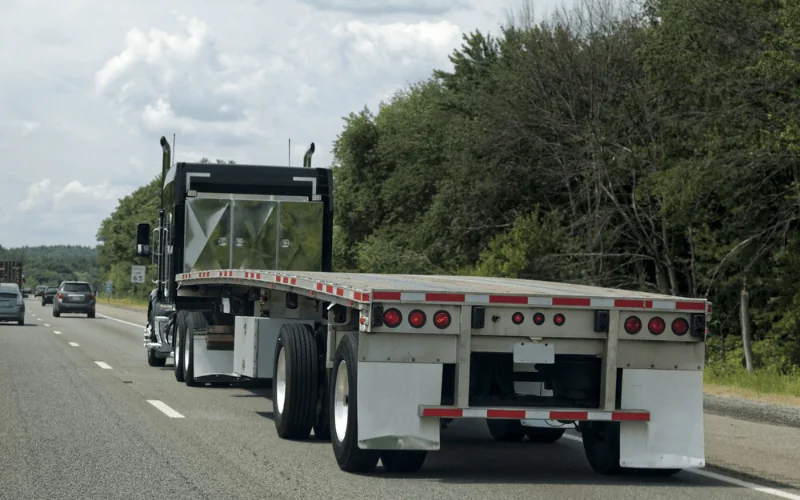
Flatbed Freight Shipping Services
Affordable, flexible solutions for heavy, oversized, or irregularly shaped cargo. Instantly compare quotes from top flatbed carriers.
Explore Trusted Resources for Flatbed Shipping Solutions
Compare Flatbed Shipping Rates Across Carriers Truckload Freight Weather Considerations for Flatbed ShippingWhat Is Flatbed Freight and Why It’s the Best Option for Oversized Shipping
Flatbed freight refers to a transportation method that uses open-deck trailers or trailers without walls or a roof, making them ideal for shipping oversized, heavy, or irregularly shaped items that can’t be loaded into standard enclosed trailers. Commonly used to move construction equipment, building materials, industrial machinery, and large vehicles, flatbeds provide unmatched flexibility for top, side, or crane loading.
At FreightCenter, we specialize in connecting shippers with top-rated flatbed carriers across the country. Whether you’re moving a single piece of equipment or coordinating a complex load with multiple permits, our expert team and AI-powered tools make it easy to compare rates, schedule pickup, and track your shipment—all in one platform. Fast, reliable, and cost-effective, our flatbed shipping solutions help you get the job done without the hassle.
Thousands of businesses trust FreightCenter to move their freight faster, smarter, and cheaper! From unbeatable rates to top-notch service, our customers are raving about their shipping success.
See why they keep coming back!
Award-Winning Service, Trusted by Shippers Everywhere!
- 2021, 2017 & 2016 Food Logistics’ Top Green Providers
- 2021 & 2018 Supply & Demand Chain Executives’ Pros to Know: Matthew Brosious
- 2020 & 2019 Top Food Logistics’ 3PL & Cold Storage Provider Award
- 2020 & 2019 Business Observer’s Top 500 Companies on the Gulf Coast
- 2020 & 2017 SmartWay® Transport Partner
- 2020 & 2017 Food Logistics’ Champions: Rock Stars of the Supply Chain
- 2020 Best of Palm Harbor Awards for Local Businesses
- 2017 Green Supply Chain Award from Supply & Demand Chain Executive
- 2017 Tampa Bay Business Journal Heroes at Work
- 2016, 2015, & 2012 Food Logistics Top 100 Software and Technology Providers
- 2013 Tampa Bay Business 100 by Tampa Bay Business Journal
- 2013 Top 100 Great Supply Chain Partners by SupplyChainBrain
- 2012 TIA Samaritan Award Honorable Mention
- 2012, 2011 & 2010 TBBJ Fast 50 Recipient
- 2013, 2011, & 2010 Diversity Business Top Businesses
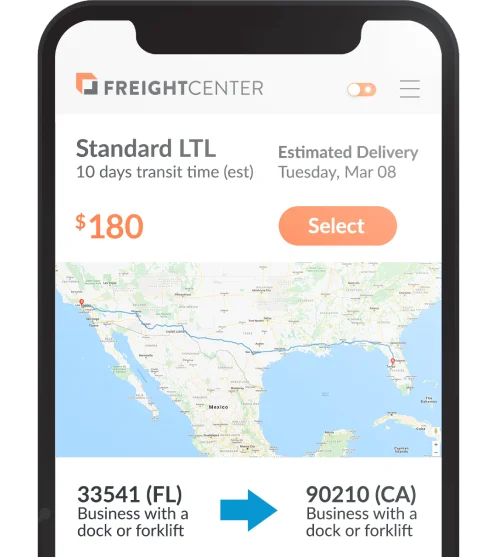
Why Choose FreightCenter for Flatbed Freight Shipping?
- AI-Powered Matching: We use intelligent algorithms to connect you with the best carriers for your freight.
- Expertise You Can Trust: 20+ years of experience handling complex, heavy, and irregular shipments.
- Transparent Pricing: Instantly compare rates and book with confidence—no hidden fees.
- Dedicated Freight Experts: Support from quote to delivery with one point of contact.
Industries That Rely on Flatbed Freight
Flatbed freight plays a critical role across a wide range of industries that require flexibility, strength, and accessibility when shipping large or irregular cargo. At FreightCenter, we specialize in helping businesses across key sectors find the right trailer and carrier for their specific needs. Here’s how flatbed shipping supports each industry:
Construction & Heavy Equipment Shipping
From steel beams and scaffolding to excavators and bulldozers, the construction industry depends heavily on flatbed trailers to move equipment and materials to job sites. FreightCenter helps contractors streamline shipments with access to step decks, RGNs, and lowboys tailored for heavy-duty hauls.
Manufacturing Freight Shipping
Manufacturers often move raw materials, oversized parts, and finished machinery that don’t fit inside enclosed trailers. Our flatbed network enables safe, efficient transport of everything from fabricated metal to CNC equipment, with carrier options that support high-volume and just-in-time delivery needs.
Oil & Gas Equipment Shipping
Oilfield operations require specialized transport for pipes, drilling rigs, and significant components, often headed to remote areas. FreightCenter provides flatbed solutions—including extendable trailers and double drops—backed by logistics support for oversized and high-value energy freight.
Agricultural Equipment Shipping
From large tractors and harvesters to irrigation systems and hay bales, flatbeds make it easy to move agricultural machinery and supplies across rural and interstate routes—FreightCenter partners with carriers experienced in handling wide loads and farm equipment logistics.
Renewable Energy Equipment Shipping
The renewable sector relies on flatbed freight to move wind turbine blades, solar panel arrays, and energy storage equipment. FreightCenter’s specialized trailers and expert planning help ensure secure and efficient transport for these delicate, oversized assets.
Industrial Machinery Shipping
Whether shipping printing presses, packaging machines, or heavy-duty compressors, flatbeds provide the flexibility needed for loading and securing complex industrial machinery. FreightCenter coordinates every step—from quoting to final delivery—with expert insight into machinery transport.
What is the Average Flatbed Shipping Rate?
As of 2024, the average flatbed shipping rate in the U.S. is $3.25 per mile, though prices vary based on the region:
- West: $2.75 per mile
- Midwest: $3.29 per mile
- North: $3.32 per mile
- Southeast: $3.49 per mile
These regional differences, along with factors like state regulations, carrier availability, capacity, and demand, affect the total cost of your shipment. Market conditions such as fuel prices and driver availability can also impact rates. Knowing these variables will help you better plan your flatbed freight needs.
What Factors Determine Flatbed Shipping Costs?
Several factors, including weight, size, distance, and fuel costs, influence flatbed shipping rates. Heavier loads burn more fuel, and longer routes mean higher mileage costs. Verifying that the carrier can handle your freight and has routes that align with your destination is also essential. Seasonal demand, local regulations, and specific delivery requirements may further affect rates.
Using specialized trailers—like step decks or heavy haul trailers—can increase shipping costs, especially in regions with limited carrier capacity. Flexibility with pickup dates and understanding these cost drivers can help you secure more competitive rates.
How to Ship Flatbed Freight With FreightCenter
-
Enter Your Freight Details – Dimensions, weight, and destination.
-
Compare Carrier Quotes – AI-powered matching to top carriers.
-
Book & Track – Manage everything in your FreightCenter dashboard.
-
Delivery & Support – Our team monitors your shipment end-to-end.
When it comes to flatbed freight, choosing the right trailer is key to ensuring a safe, compliant, and cost-effective shipment. At FreightCenter, we offer access to a wide range of specialized flatbed trailer types to accommodate everything from standard palletized goods to oversized industrial equipment. Whether you need a step deck for height clearance or a removable gooseneck for heavy machinery, we help match your freight with the ideal equipment for the job.
FreightCenter connects you with a nationwide network of standard flatbed carriers, perfect for general freight like palletized materials, steel, or construction goods. These 48’–53’ trailers are the workhorses of the industry, offering a flat, open deck with no sides or roof. Ideal for top and side loading.
Oversized doesn’t just mean heavy—it can mean long. FreightCenter’s extendable flatbeds stretch to accommodate beams, wind turbine blades, and other freight that exceeds traditional trailer lengths. These trailers offer unmatched flexibility for unusually long loads.
For extremely heavy equipment, FreightCenter offers lowboy trailers with an ultra-low deck height and high weight capacity. These trailers are perfect for hauling bulldozers, excavators, and industrial equipment that exceed normal weight and height limits, and we’ll assist with any required permits and escorts.
Need extra vertical clearance? FreightCenter’s step deck trailer options allow for taller freight without the need for permits. The lower deck accommodates machinery, vehicles, and oversized loads, while our experts ensure every shipment meets DOT height requirements.
For ultra-tall or heavy equipment, our double drop trailers—also known as lowboys—sit even lower to the ground, enabling you to move loads up to 12 feet high. FreightCenter’s logistics team helps coordinate permits and escorts for specialized shipments.
When your freight needs to be rolled or driven onto the trailer, FreightCenter’s RGN options make loading seamless. The detachable front allows the trailer to drop to the ground for self-powered equipment—perfect for hauling bulldozers, cranes, and large tractors.
Conestoga trailers offer the protection of enclosed shipping with the flexibility of a flatbed. These specialized trailers use a sliding tarp system—similar to a retractable curtain—that covers your freight without requiring it to be top-loaded through a roof or manually tarped. At FreightCenter, we recommend Conestoga trailers for loads that need weather protection or have sensitive surfaces, like aerospace components, machinery, or finished goods. You get the best of both worlds: open-deck versatility with enclosed security.
Maxi trailers are designed for high-capacity and high-volume shipments, offering additional axles and extended trailer lengths to handle extremely heavy or oversized freight without compromising safety or compliance. These trailers are commonly used in the Pacific Northwest and other regions with specific bridge laws. At FreightCenter, we leverage our carrier network to match your heavy haul with the right maxi configuration—ensuring your load meets state-specific requirements while staying on time and on budget.

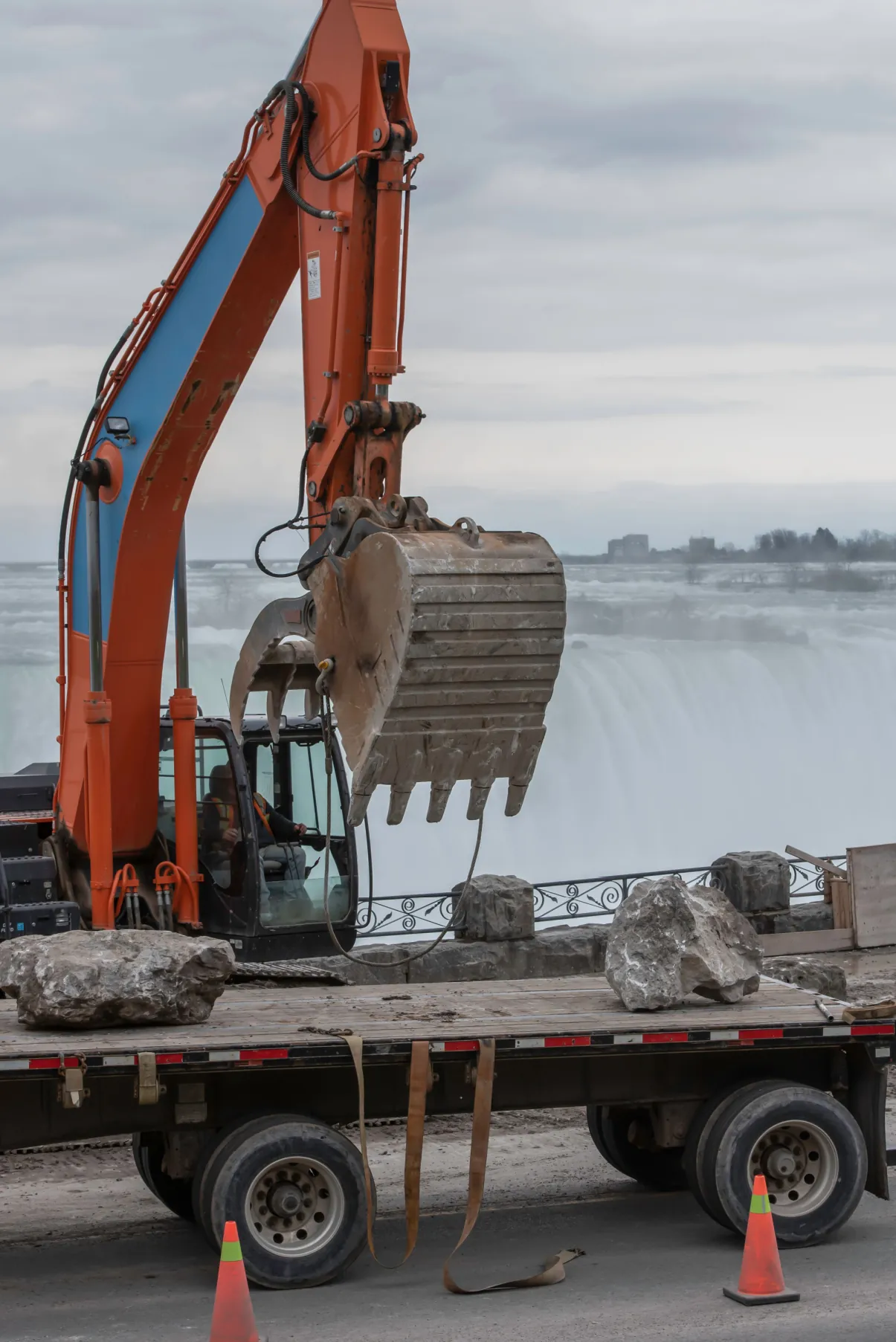
Average Flatbed Trailer Specifications
Trailer Specifications
- Maximum Cargo Weight: 48,000 pounds
- Maximum Trailer Length: 53 ft
- Maximum Trailer Width: 8.5 ft
- Maximum Cargo Height: 8.5 ft
Flatbed Sizes and Weight Limits
Flatbed trailers are among the most widely used trailers due to their versatility. They can transport a variety of cargo, including shipping containers, heavy machinery, vehicles, and other oversized equipment. At FreightCenter, we provide top-quality flatbed services across Florida, the U.S., Mexico, and Canada. Whether you need to ship a single piece of equipment or multiple loads, we’ll select the right trailer to meet your shipping needs.
A flatbed trailer can be loaded using a crane, forklift, or loading dock. For operable equipment, a loading dock is ideal as it allows vehicles and machinery to be driven directly onto the trailer. Once loaded, cargo is securely fastened with durable chains or straps to ensure safe transportation. If weather conditions are harsh, the load is protected using heavy-duty tarps to prevent damage.
FreightCenter offers flatbed trailers in multiple sizes, including 20 ft, 40 ft, 48 ft, and 53 ft. These trailers can sometimesn accommodate slightly longer loads, depending on the cargo and configuration. Whether you’re transporting locally or across borders, we provide reliable, secure flatbed solutions to keep your freight moving safely and on time.
Flatbed Freight FAQs
Have questions about flatbed freight shipping? You’re not alone. Whether you’re new to shipping or a seasoned logistics manager, getting clear answers can make a big difference. That’s why we’ve compiled the most frequently asked questions from real FreightCenter shippers. From trailer types and permits to quoting, booking, and tracking, these answers will help you ship smarter, faster, and with total confidence.
Q. What is flatbed freight shipping with FreightCenter?
Flatbed freight with FreightCenter means instant access to top-rated carriers, transparent pricing, and expert support from quote to delivery. Learn how flatbed shipping works.
Q. Why choose FreightCenter for flatbed freight services?
We’ve helped thousands of shippers book cost-effective flatbed loads with the right equipment and the right carrier. See why shippers trust FreightCenter.
Q. How do I get a flatbed shipping quote from FreightCenter?
Use our online freight quote tool to compare rates from 100+ flatbed carriers in seconds.
Q. What flatbed trailer types does FreightCenter offer?
We provide access to standard flatbeds, RGNs, step decks, lowboys, Conestogas, and more. View flatbed trailer options.
Q. Can FreightCenter handle oversized or permitted loads?
Yes, we coordinate oversized flatbed freight, including permits, routing, and escorts if needed.
Q. Does FreightCenter offer flatbed shipping for construction equipment?
Absolutely. We specialize in construction freight shipping, including excavators, loaders, and steel materials.
Q. How does FreightCenter match me with a flatbed carrier?
We use AI-powered tools and a network of over 100 qualified flatbed carriers to ensure your freight is matched with the best option for cost and reliability. Learn about our technology.
Q. Can I speak with a real person at FreightCenter?
Yes. Every shipper gets a dedicated freight agent for personalized support. Meet our team.
Q. How does FreightCenter handle time-sensitive flatbed freight?
Our expedited freight options include time-definite flatbed shipping and priority scheduling to meet your deadlines.
Q. Does FreightCenter offer tracking for flatbed shipments?
Yes. Use the FreightCenter customer portal to view status updates and track progress in real time.
Q. What industries use FreightCenter for flatbed freight?
Our top flatbed clients come from industries like manufacturing, agriculture, oil & gas, and renewable energy. Explore supported industries.
Q. Can I ship farm machinery with FreightCenter?
Yes. Our flatbed carriers regularly haul tractors, combines, and irrigation gear. See agriculture freight services.
Q. What if my flatbed freight needs to be tarped?
We’ll help coordinate tarping and other load protection requirements. Include it in your quote request. Get a flatbed quote.
Q. Can FreightCenter ship long freight like steel beams or wind blades?
Yes. We offer extendable and stretch trailer options designed for long, oversized loads.
Q. How does FreightCenter ensure safe loading on flatbeds?
We work with experienced carriers that understand how to secure and handle specialized freight safely and in compliance with DOT guidelines.
Q. Do I need to create an account to ship with FreightCenter?
Yes, a free account gives you access to tracking, shipment history, and tools.
Q. Can FreightCenter help manage recurring flatbed shipments?
Yes. We offer managed logistics services for recurring or multi-lane shipping needs.
Q. What documents do I need for a flatbed shipment?
Typically, a Bill of Lading (BOL), freight details, and any necessary permits are required. We help generate and manage these as part of our booking process.
Q. How long does it take to schedule a flatbed pickup with FreightCenter?
Many shipments can be picked up same-day or next-day, depending on availability. Book your shipment now.
Q. What regions does FreightCenter serve for flatbed shipping?
We provide nationwide and cross-border flatbed services across the U.S., Canada, and Mexico.
3 Secrets Most People Don’t Know About Flatbed Freight Services
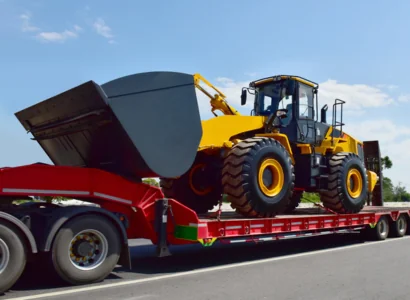
Not All Flatbeds Are Created Equal
Many shippers assume a “flatbed is a flatbed,” but there are over a dozen specialized trailer types—from RGNs and stretch trailers to Conestogas—each designed for specific cargo shapes, weights, and loading methods. Choosing the wrong one can lead to delays, extra fees, or even denied pickups. At FreightCenter, our team ensures the right equipment is matched to your shipment the first time.

Tarps Aren’t Always Optional—They’re Often Required
Think your cargo doesn’t need to be covered? Many flatbed carriers won’t haul unprotected freight, especially if it's weather-sensitive or prone to damage. Tarping requirements can affect pricing and availability. FreightCenter makes it easy to include tarping (or upgrade to a Conestoga) during the quoting process so you’re never caught off guard.
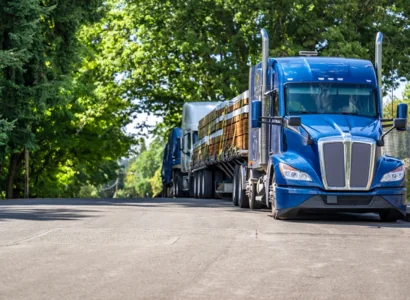
Flatbed Freight Isn’t Just for Big Companies
Small businesses and even individual shippers can use flatbed freight services. With FreightCenter, you don’t need a shipping contract or logistics department—just your freight specs and destination. We level the playing field by giving you access to the same carrier network and pricing tools the big players use.

